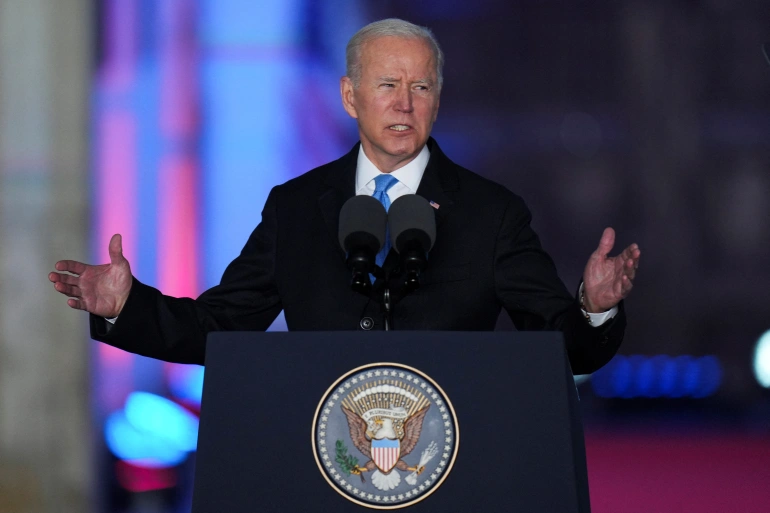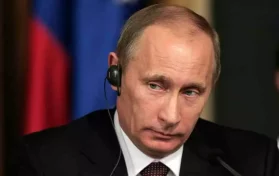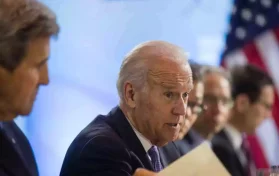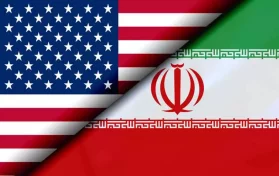
President Biden has spent the last few days in Europe to attend to foreign policy issues, chiefly the ongoing conflict in Ukraine. His initial stop in Brussels involved an emergency NATO meeting, while Biden has also traveled to Poland to ascertain the refugee situation there.
Joe Biden’s propensity for “gaffe-tastic” remarks have been greatly highlighting during this most recent European trip, leaving White House staff tasked with clarifying a multitude of comments made during Biden’s journey.
On Saturday alone, President Biden said during a blistering speech to the United Nations that included what appeared to be a call for Russian President Vladimir Putin to be removed from office: “For God’s sake, this man cannot remain in power,” said Biden at a speech in front of the Royal Castle in Warsaw, Poland. He later told reporters that Vladimir Putin “is a butcher.”
Not long after Biden’s speech, the White House appeared to attempt to clean up the comments. Staffers and senior officials denied that Biden’s remarks were a “call for regime change,” which could no doubt be viewed as escalatory remarks and a strong departure from previous policy regarding the leadership of Russia.
Both the Secretary of State Antony Blinken and White House Press Secretary Jen Psaki have said in the past that the policy of the United States does not include a change in the leadership of Russia.
A White House official spoke with Fox News Digital, reiterating the points of Psaki and Blinken: “The President’s point was that Putin cannot be allowed to exercise power over his neighbors or the region. He was not discussing Putin’s power in Russia or regime change.”
While Biden also described Putin as a “butcher,” the White House did not directly comment on that statement. However, political pundits have noted since Russia invaded Ukraine on February 24, Biden has said many things that make foreign policy officials cringe. These remarks can’t help the plight of the United States or the European Union in attempting to utilize diplomacy in ending the Russia-Ukraine conflict.
The world and the White House staff was paying attention on Friday when Biden visited American troops in Poland; the president remarked to the troops that the Ukrainian people “have a lot of backbone.” He then commented: “You’re going to see when you’re there – some of you have been there – you’re going to see women, young people, standing in the middle, in front of a tank, saying, ‘I’m not leaving.'”
Since before the official invasion date of February 24, the Biden Administration has been adamant that no American troops will be deployed to fight in the midst of the Ukraine-Russia conflict. However, those comments on Friday inferred that troops would be sent there at some point. A White House spokesperson quickly addressed the president’s comments, saying: “The President has been clear we are not sending U.S. troops to Ukraine and there is no change in that position.”
Just the day before, however, the media and political pundits alike were focused on Biden’s initial gaffe, which appeared to claim that Americans would launch chemical or nuclear weapons should President Putin do so first.
Reporters asked Biden after the NATO emergency meeting how the UN and NATO would respond if Putin did launch weapons of mass destruction on Ukraine. Biden responded that “such a move would trigger a response in kind.” In this case, National Security Advisor Jake Sullivan to clarify these remarks: “we’ll respond accordingly” and Russia would pay “a severe price” for utilizing weapons of that type against the people of Ukraine.
Sullivan added: “I won’t go beyond that other than to say the United States has no inention of using chemical weapons, period, under any circumstances.”
Sullivan added that the White House and other Western allies have already discussed the potential of President Putin unleashing this type of weapon on the Ukrainian people, and a contingency plan has been developed in light of this possibility.





